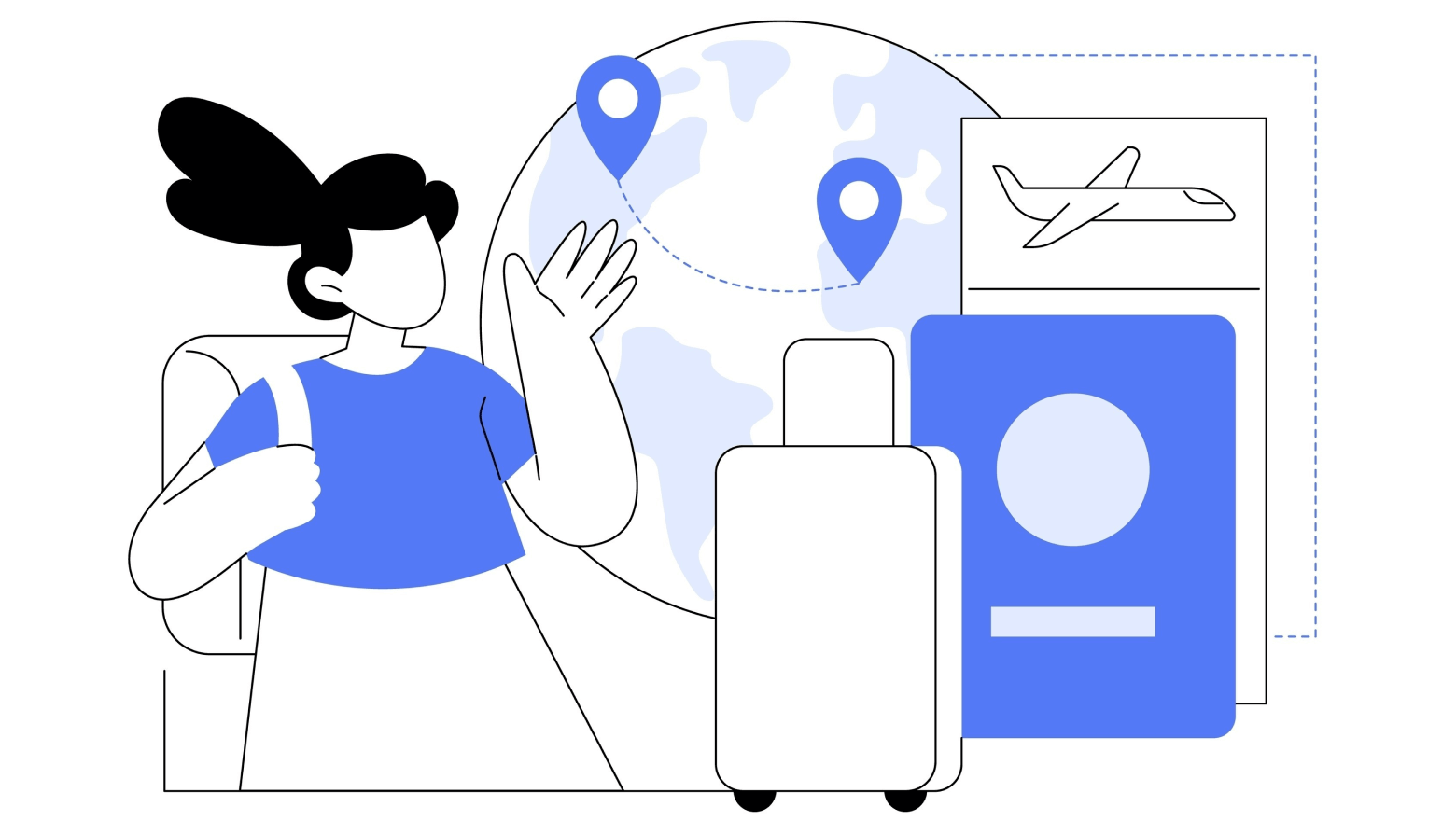Travel and hospitality is one of the largest and most competitive industries in an increasingly globalized world. Businesses in this sector bring service to a diverse clientele, often requiring interactions in multiple languages. Machine translation (MT) plays a crucial role in ensuring effective communication. It gives multilingual support for hotels, airlines, and tourism companies overcome language barriers, improve customer experiences, and drive business growth. In this article, we will discuss the importance of MT in the travel and hospitality industry and how it can impact your business.

The Application of Lingvanex Machine Translation Software in Travel and Hospitality
Lingvanex is a leading provider of machine translation solutions, known for its robust and secure software. Translation software with support for over 100 languages is particularly beneficial for the travel and hospitality industry, offering several key applications:
1. Translation of Websites and Online Booking Platforms
Lingvanex's machine translation tools enable businesses to translate their websites and booking platforms into multiple languages. People who are planning their trip to another country will rather prefer to get information in their mother tongue and according to a CSA Research report, 65% are more likely to prefer their first language while buying. MT ensures that non-native speakers can easily navigate and understand the services offered, making the booking process more accessible and user-friendly.
2. Communication with International Customers
Machine translation software can also be used to communicate with international customers via email, chat, and social media, providing real-time translations and multilingual support, that help businesses respond quickly and be sure that language differences do not hinder customer service.
3. Translation of Customer Reviews and Feedback
Customer reviews and feedback are invaluable for improving services and building a reputable brand. With Lingvanex, businesses can efficiently translate reviews and feedback from various languages, gaining valuable insights into the customer experience and identify areas for improvement.
4. Language Support for Staff Members
Lingvanex can also facilitate communication and collaboration in multinational environments. MT tools can provide language support, translating training materials, operational guidelines, and internal communications.
Benefits of Machine Translation in Travel and Hospitality
Springer Nature journal has studied attitudes towards machine translation among travelers, and reveals a wide range of its use in the context of tourism. For example, MT enables access to materials on websites in different languages, for example promoting Croatian hospitality and tourism businesses or red tourism in China. Social media and tourism-related platforms, such as TripAdvisor or Booking.com, use automatic translation to improve efficiency and intercultural communication. MT is widely used in translating travel guides, restaurant menus, brochures, maps, and other promotional materials. In combination with other analytical tools, it also can be very useful for the tourism industry to examine customer reviews. Travelers as well can rely on online translators on their smartphones to understand messages in the local language, for example, shop and road signs in Arabic.
Therefore, the implementation of MT offers a range of benefits for both businesses and customers:
- Improved Customer Experience. Machine translation makes websites and booking platforms accessible in multiple languages. Guests get personalized experiences and feel more comfortable and valued when they can communicate in their native language, which significantly enhances the customer experience and leads to higher satisfaction and loyalty.
- Increased Efficiency and Productivity. Machine translation tools can process large amounts of data in no time covering different types of content such as websites, emails, and text documents. MT software reduces reliance on external translation services and streamline various processes, such as customer communication and language localization of the content.
- Cost Savings for Businesses. Investing in machine translation software can lead to significant cost savings for your businesses. It reduces the need for hiring additional multilingual staff or outsourcing translation services, which can be expensive. Translation solutions are usually offered at a fixed price, which is cost-effective in the long run, especially for organizations with high translation volumes. You can choose from Lingvanex machine translation solutions offered as an annual or monthly subscription with a free trial period.
- Enhanced International Communication and Collaboration. Machine translation for travel and hospitality businesses plays a crucial role in reaching a wider audience. This is particularly important for companies operating in multiple countries or serving a global clientele. MT facilitates seamless communication with international partners and suppliers, opening doors for new business opportunities and collaborations.
Future Trends in Machine Translation
The machine translation for the travel industry is now experiencing a dynamic shift due to technological advancements, changing consumer expectations, and the globalization of business. Let’s have a closer look at some key trends that are defining the future of translation:
Potential Advancements in Machine Translation Technology
Machine translation services are constantly evolving to meet the needs of a modern world. Voice recognition and translation, facilitated by video and teleconferencing technologies, has become increasingly important, particularly in the wake of the COVID-19 pandemic. This change has made MT more accessible and flexible. Real-time translation is rapidly adopted in digital communication platforms, including chatbots, video conferencing tools, and customer support systems allowing high quality language support in different situations.
Integration of Artificial Intelligence and Machine Learning
The integration of Artificial Intelligence (AI) and Machine Learning (ML) enhance the capabilities of machine translation software. These technologies enable the software to learn to understand context, tone, and cultural nuances improving accuracy and context-awareness over time.
Neural Machine Translation (NMT) represents cutting-edge translating technology. In contrast to traditional statistical or rule-based systems, NMT makes use of artificial neural networks to predict and generate translations. The result is a more natural and fluent translation owing to better understanding of the context and nuances of the source language.
Personalized and Context-Aware Translations
Thanks to Artificial Intelligence, future machine translation tools will likely offer more personalized and context-aware translations. Voice recognition, natural language processing, and AI technology help software understand and respond to your spoken commands, providing a more personalized and relevant user experience.
AI based voice assistants like Siri, Google Assistant, or Alexa become more proficient in handling multilingual interactions. They understand the user's preferences and the specific context of the communication. For instance, asking for “the best Italian restaurant nearby” you will get recommendations in your preferred language, complete with translated reviews and menus.
Conclusion
Machine translation has become an essential tool for businesses in the travel and hospitality industry, enabling them to communicate effectively with customers from around the world and deliver exceptional customer experiences. Its benefits include improved customer satisfaction, greater efficiencies, reduced costs and improved international communication. Solutions like Lingvanex Machine Translation Software are leading the way, offering tourism businesses a reliable and efficient means to connect with a global audience. As technology continues to advance, the future of translation technology promises even more sophisticated and personalized solutions, further enhancing its impact on the travel and hospitality industry.




